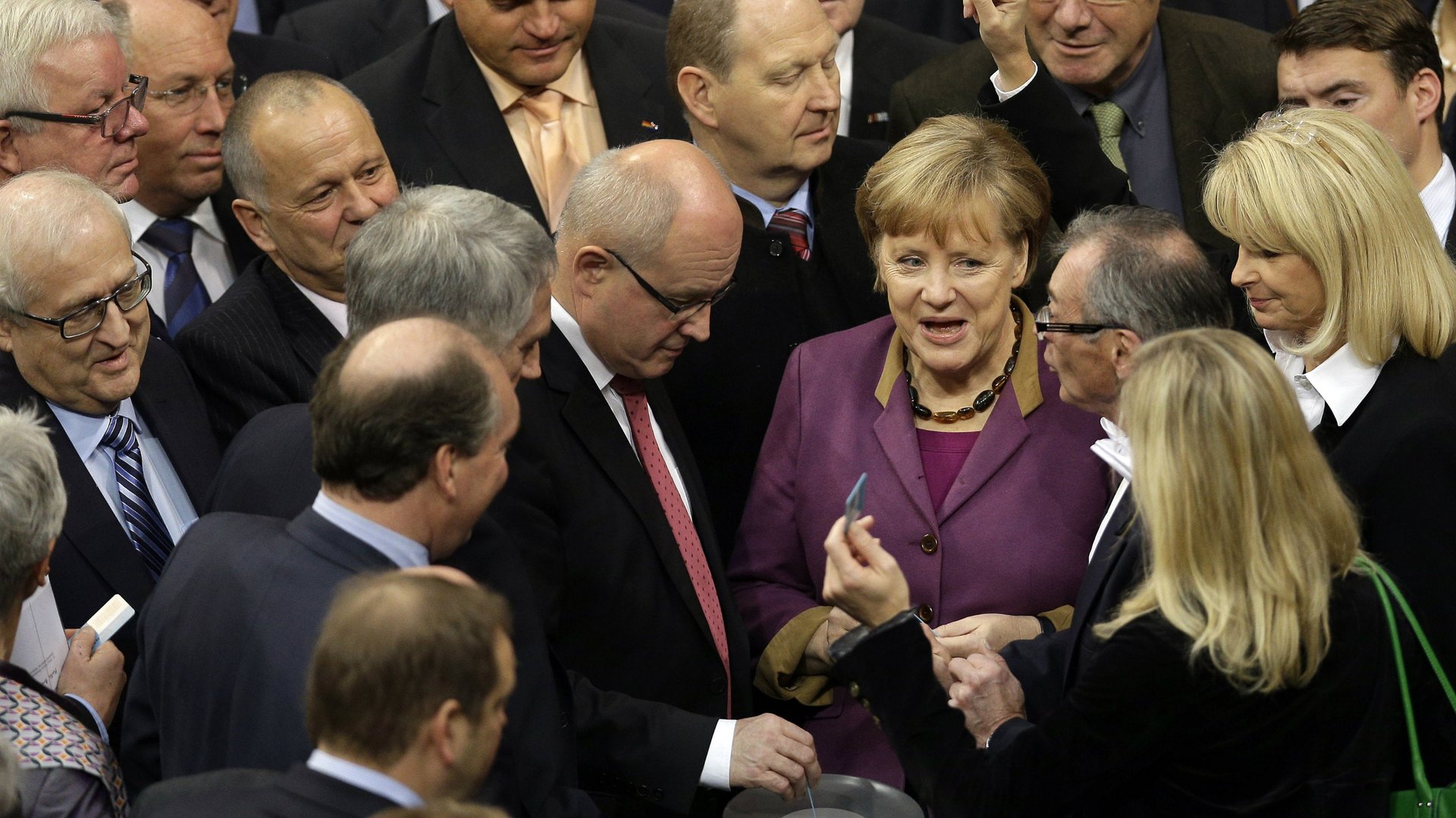Germany’s parliament approves aid deal for Greece
German members of parliament voted 473 to 100 to release €43.7 billion ($56.7) in aid for Greece, just in time to stave off bankruptcy in Athens. Eleven members of parliament abstained.


German members of parliament voted 473 to 100 to release €43.7 billion ($56.7) in aid for Greece, just in time to stave off bankruptcy in Athens. Eleven members of parliament abstained.
The vote wasn’t much of a surprise, as the country’s two main opposition parties had earlier said they would support Chancellor Angela Merkel’s ruling centre-right coalition. And not doing so may have sparked a Greek debt default and destabilized the entire euro zone, Wolfgang Schaeuble, Germany’s finance minister said prior to the vote.
The potential impact of a Greek default on other eurozone countries and the euro zone would be serious. The consequences are not foreseeable. We cannot start a process that could end in the break-up of the entire euro zone.
In the run-up to the vote, the German press was full of speculation about whether German taxpayers will eventually face losses on Greek debt. For the first time, the German government admitted this week that the bailout would cost the country in lost federal revenues. Schaeuble has said that Greece’s reforms will be strictly monitored, but many people consider inevitable a write-down of at least some of Greece’s debt.
With less than a year before elections, the vote was viewed to some degree as an early indicator of the continuing authority of Merkel. While the vote passed with opposition support, some commentators have questioned her influence as she failed to get a so-called Chancellor’s Majority, which would have required 14 more votes from her own party.